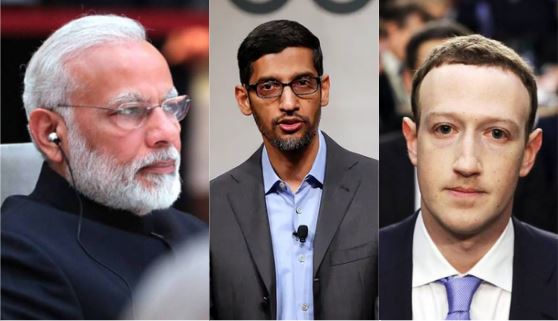After India undertook a digital surgical strike upon China and its ambitions of creating a digital silk route by banning 59 Chinese apps including the espionage app TikTok, other apps like PUBG are running from pillar to post to find cover from the government’s wrath after reports of banning 275 new apps hit the newspapers.
Citing sovereignty, integrity, defence, and security of the state of India, the government had brought the sledgehammer on the fate of TikTok. The Bytedance owned company was accused of being a CCP mole that stole the Indian user data to be used covertly by the vile Xi Jinping regime.
The likes of TikTok and PUBG are impediments to India’s national security but fortunately, they have given the almost perfect ammo to the government to push for its data localization reforms.
In layman terms, Data localization is the processing and storage of data within the specific border of the country where the data was generated.
Modi government had introduced the Personal Data Protection Bill, 2019 in Lok Sabha on December 11, 2019 and the Bill seeks to provide for the protection of personal data of individuals and to establish a Data Protection Authority for the same. The government is of the view that the privacy of individuals must be maintained and their data must be stored locally.
However, the global tech giants like Facebook and its co-founder Mark Zuckerberg have taken a rather rough stance on the data-localization issue.
Mark Zuckerberg, in the past, has said that Facebook will not set up data centres in other countries stating that it establishes a precedent that emboldens other governments to seek greater access to their citizen’s data and therefore weakens privacy and security protections for people around the world.
Well, if Zuckerberg indeed was so critical of privacy of an individual then Cambridge Analytica and myriad other scandals that have happened under his nose wouldn’t have happened.
The Data Protection Bill (DPB) is currently being analyzed by a Joint Parliamentary Committee in consultation with experts and stakeholders. The likes of Facebook and Google are praying that this bill doesn’t see the light of the day as their monopoly over the user’s data, especially Indian user’s data will be targeted.
Currently, users’ data with the giant tech companies is either partly or completely stored outside India. When the sovereign data remains within the sovereign boundaries then the users have much better control over their data.
If someone wants to completely delete their digital footprint off an app or a service, a call or mail to the localized data centre would be enough. However, when the data is stored outside the country, say China, then the authoritarian regime has all the power in its hand to churn out your data, without your knowledge.
With data localization, this anomaly can be fixed that would help not only in safeguarding users’ privacy but also ensuring that due taxes are paid by these digital giants.
The Puttaswamy vs India judgment that came in the year 2017, termed privacy as a fundamental right under the Constitution of India. Consequently, the DPB aims to safeguard the fundamental right of the people of India. When these companies take the user’s data to foreign countries to save some dimes from their operating revenue, they gravely compromise on the privacy of the users.
Under DPB, all “sensitive personal data” will be stored in India and that “critical personal data” will not be transferred out of India.
Reported yesterday by TFI, PUBG, growing wary of an imminent ban looming over its head had updated its privacy policies after news broke out in the media circles that government was mulling to take PUBG out of the Indian app shelf. PUBG claimed that it has started storing the Indian user’s data in the local data-centres.
PUBG so far has avoided the wrath of government due to its mixed ownership, however, it would take much more effort on its part to convince the ministry to let it stay afloat in the country.
While PUBG makes all the last-ditch efforts to stay in business, it has set a precedent for the likes of Facebook and Amazon that if you want to stay in India, then you have to build local data-storage centers. When push came to shove, even PUBG said it stored Indian users’ data here, who knows a similar pressure tactic might work on the aforementioned tech behemoths.
Zuckerberg has already been feeling the heat and several news reports have stated that the Facebook co-founder fears that if he drops the ball in context of India’s national security then the Modi government might snap out FB out of existence in the country, just like it did with TikTok – by banning it overnight.
And it’s not only India where the monopoly of the biggies of the tech world is being challenged. Yesterday, at the US House Judiciary Committee hearing, CEO’s of Google, Amazon, Apple and Facebook were summoned. After the usual blame-game of the CEO’s, the committee and its members called for a need to break up these companies so as they can be properly regulated and held accountable.
And if these companies are fretting over finding data-centers in India then that headache has been taken care of by India’s top and wealthiest businessmen like the Adani’s and Ambani’s.
The Adani group has plans to build data parks in the Southern states of India with an investment worth 700 billion rupees ($10.2 billion) in the next two decades. Mukesh Ambani’s Reliance Industries Ltd has announced that it will build data centres across the country in collaboration with Microsoft’s Azure cloud.
Data is the new oil in the 21st century and India is standing on the cusp of a data-revolution and if India passes the Data Protection Bill, a dangerous domino effect might ensue and the global tech giants will have no alternative but to bend the knee.
